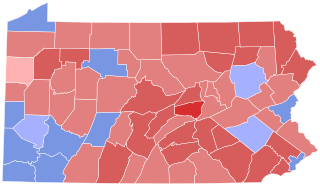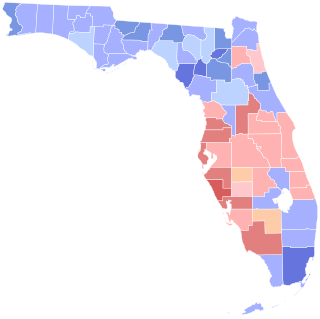
Frank Edward "Ted" Moss was an American lawyer and politician. A Democrat, from 1959 to 1977 he served as a United States Senator from Utah, and is currently the last Democrat to do so.

The 1976 United States Senate elections was an election for the United States Senate. Held on November 2, the 33 seats of Class 1 were contested in regular elections. They coincided with Democrat Jimmy Carter's presidential election and the United States Bicentennial celebration. Although almost half of the seats decided in this election changed parties, Carter's narrow victory did not provide coattails for the Democratic Party. Each party flipped seven Senate seats, although, one of the seats flipped by Democrats was previously held by a Conservative.

The 1970 United States Senate elections was an election for the United States Senate. It took place on November 3, with the 33 seats of Class 1 contested in regular elections. Special elections were also held to fill vacancies. These races occurred in the middle of Richard Nixon's first term as president. The Democrats lost a net of three seats, while the Republicans and the Conservative Party of New York picked up one net seat each, and former Democrat Harry F. Byrd Jr. was re-elected as an independent.

The 1968 United States Senate elections were elections for the United States Senate. Held on November 5, the 34 seats of Class 3 were contested in regular elections. They coincided with the presidential election of the same year. The Republicans picked up five net seats in the Senate. This saw Republicans win a Senate seat in Florida for the first time since Reconstruction.

The 1964 United States Senate elections were held on November 3. The 33 seats of Class 1 were contested in regular elections. Special elections were also held to fill vacancies. They coincided with the election of President Lyndon B. Johnson by an overwhelming majority, to a full term. His Democratic Party picked up a net two seats from the Republicans. As of 2023, this was the last time either party has had a two-thirds majority in the Senate, which allowed the Senate Democrats to override a veto, propose constitutional amendments, or convict and expel certain officials without any votes from Senate Republicans. However, internal divisions would have prevented the Democrats from having done so. The Senate election cycle coincided with Democratic gains in the House in the same year.

The 1962 United States Senate elections was an election for the United States Senate. Held on November 6, the 34 seats of Class 3 were contested in regular elections. Special elections were also held to fill vacancies. They occurred in the middle of President John F. Kennedy's term. His Democratic Party made a net gain of four seats from the Republicans, increasing their control of the Senate to 68–32. However, this was reduced to 67–33 between the election and the next Congress, as on November 18, 1962, Democrat Dennis Chávez, who was not up for election that year, died. He was replaced on November 30, 1962, by Republican appointee Edwin L. Mechem. Additionally, Democrat Strom Thurmond became a Republican in 1964, further reducing Democrats to 66–34. This was the first time since 1932 that Democrats gained seats in this class of Senators.
The Utah Democratic Party is the affiliate of the Democratic Party in the U.S. state of Utah. The party describes itself as a big tent party.

Laurence Junior Burton was a U.S. Representative from Utah.

The 2010 United States Senate election in Utah took place on November 2, 2010, along with other midterm elections throughout the United States. Incumbent Republican U.S. Senator Bob Bennett was seeking re-election to a fourth term, but lost renomination at the Republican Party's state convention. Mike Lee proceeded to win the Republican primary against Tim Bridgewater and the general election against Democrat Sam Granato. As of 2024, this is the most recent U.S. Senate election in which a political party held the seat after denying renomination to the incumbent senator.

The 1898–99 United States Senate elections were held on various dates in various states. As these U.S. Senate elections were prior to the ratification of the Seventeenth Amendment in 1913, senators were chosen by state legislatures. Senators were elected over a wide range of time throughout 1898 and 1899, and a seat may have been filled months late or remained vacant due to legislative deadlock. In these elections, terms were up for the senators in Class 1.

The 1958 United States Senate election in Utah was held on November 4, 1958.

The 1964 United States Senate election in Utah was held on November 3, 1964.

The 1976 United States Senate election in Utah took place on November 2, 1976. Incumbent Democratic U.S. Senator Frank Moss ran for re-election to a fourth term but was defeated by his Republican opponent Orrin Hatch. This is the last time a Senator from Utah lost re-election.

The 1988 United States Senate election in Utah took place on November 8, 1988, concurrently with the U.S. presidential election as well as other elections to United States Senate and United States House of Representatives as well as various state and local elections. Republican Orrin Hatch won re-election against Democratic challenger Brian Moss, the son of Hatch's predecessor Frank Moss.

The 1970 United States Senate election in Pennsylvania was held on November 3, 1970. Incumbent Republican U.S. Senator Hugh Scott won re-election, defeating Democratic nominee William Sesler.

The 1974 United States Senate election in Florida was held on November 5, 1974. Incumbent Senator Edward Gurney, a Republican, declined to seek a second term after being indicted for taking bribes in return for his influence with the Federal Housing Administration. The primary for the Republican nomination pitted Eckerd drug store owner Jack Eckerd against Florida Public Service Commissioner Paula Hawkins. Eckerd won handily, receiving approximately 67.5% of the vote. The Democratic primary, however, was a crowded field with eleven candidates vying for the nomination. Because no candidate received a majority of the votes, U.S. Representative Bill Gunter and Secretary of State of Florida Richard Stone advanced to a run-off election. Stone won by a small margin of 1.68%.

The 1970 United States Senate election in Tennessee was held on November 3, 1970. Republican Bill Brock defeated Democratic incumbent Albert Gore, Sr. who ran for a fourth term. With Brock's victory, Republicans held both of Tennessee's U.S. Senate seats marked the first time in any former Confederate State and as well since Reconstruction in 1871. He was also the first Republican to hold this seat since 1875.

The 1928 United States Senate special election in Ohio was held on November 6, 1928, to elect a successor to Frank B. Willis, who died in office in March 1928. Republican U.S. Representative Theodore E. Burton, who previously held this seat from 1909 to 1915, won the open race to succeed him.

The 1954 United States Senate special election in California was held on November 2, 1954, to elect a U.S. Senator to complete the unexpired term of Senator Richard Nixon, who resigned on becoming Vice President of the United States following the 1952 presidential election. Incumbent Republican U.S. Senator Thomas Kuchel, who had been appointed by Governor Earl Warren, won election to the remainder of the term, defeating Democratic nominee Sam Yorty.

The 1966 United States Senate election in Tennessee was held on November 8, 1966, concurrently with other elections to the United States Senate in other states as well as elections to the United States House of Representatives and various state and local elections. Republican nominee Howard Baker won the election, defeating Democratic nominee and Tennessee Governor Frank G. Clement with 55.7% of the vote.





















